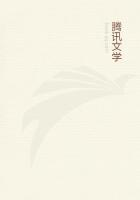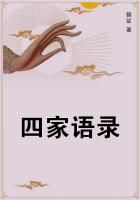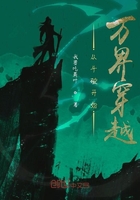She remained totally overwhelmed, as it seemed--mute, pale, and motionless as a statue. Only at her mother's command, sternly uttered, she summoned strength enough to restore to her plighted suitor the piece of broken gold which was the emblem of her troth. On this he burst forth into a tremendous passion, took leave of the mother with maledictions, and as he left the apartment, turned back to say to his weak, if not fickle, mistresss: "For you, madam, you will be a world's wonder"; a phrase by which some remarkable degree of calamity is usually implied. He went abroad, and returned not again. If the last Lord Rutherford was the unfortunate party, he must have been the third who bore that title, and who died in 1685.
The marriage betwixt Janet Dalrymple and David Dunbar of Baldoon now went forward, the bride showing no repugnance, but being absolutely passive in everything her mother commanded or advised. On the day of the marriage, which, as was then usual, was celebrated by a great assemblage of friends and relations, she was the same--sad, silent, and resigned, as it seemed, to her destiny. A lady, very nearly connected with the family, told the Author that she had conversed on the subject with one of the brothers of the bride, a mere lad at the time, who had ridden before his sister to church. He said her hand, which lay on his as she held her arm around his waist, was as cold and damp as marble. But, full of his new dress and the part he acted in the procession, the circumstance, which he long afterwards remembered with bitter sorrow and compunction, made no impression on him at the time.
The bridal feast was followed by dancing. The bride and bridegroom retired as usual, when of a sudden the most wild and piercing cries were heard from the nuptial chamber. It was then the custom, to prevent any coarse pleasantry which old times perhaps admitted, that the key of the nuptial chamber should be entrusted to the bridesman. He was called upon, but refused at first to give it up, till the shrieks became so hideous that he was compelled to hasten with others to learn the cause. On opening the door, they found the bridegroom lying across the threshold, dreadfully wounded, and streaming with blood. The bride was then sought for. She was found in the corner of the large chimney, having no covering save her shift, and that dabbled in gore. There she sat grinning at them, mopping and mowing, as I heard the expression used; in a word, absolutely insane. The only words she spoke were, "Tak up your bonny bridegroom." She survived this horrible scene little more than a fortnight, having been married on the 24th of August, and dying on the 12th of September 1669.
The unfortunate Baldoon recovered from his wounds, but sternly prohibited all inquiries respecting the manner in which he had received them. "If a lady," he said, "asked him any question upon the subject, he would neither answer her nor speak to her again while he lived; if a gentleman, he would consider it as a mortal affront, and demand satisfaction as having received such." He did not very long survive the dreadful catastrophe, having met with a fatal injury by a fall from his horse, as he rode between Leith and Holyrood House, of which he died the next day, 28th March 1682. Thus a few years removed all the principal actors in this frightful tragedy.
Various reports went abroad on this mysterious affair, many of them very inaccurate, though they could hardly be said to be exaggerated. It was difficult at that time to become acquainted with the history of a Scottish family above the lower rank; and strange things sometimes took place there, into which even the law did not scrupulously inquire.
The credulous Mr. Law says, generally, that the Lord President Stair had a daughter, who, "being married, the night she was bride in, was taken from her bridegroom and harled through the house (by spirits, we are given to understand) and afterward died. Another daughter," he says, "was supposed to be possessed with an evil spirit."My friend, Mr. Sharpe, gives another edition of the tale.
According to his information, ti was the bridegroom who wounded the bride. The marriage, according to this account, had been against her mother's inclination, who had given her consent in these ominous words: "Weel, you may marry him, but sair shall you repent it."I find still another account darkly insinuated in some highly scurrilous and abusive verses, of which I have an original copy.
They are docketed as being written "Upon the late Viscount Stair and his family, by Sir William Hamilton of Whitelaw. The marginals by William Dunlop, writer in Edinburgh, a son of the Laird of Househill, and nephew to the said Sir William Hamilton." There was a bitter and personal quarrel and rivalry betwixt the author of this libel, a name which it richly deserves, and Lord President Stair; and the lampoon, which is written with much more malice than art, bears the following motto:
Stair's neck, mind, wife, songs, grandson, and the rest, Are wry, false, witch, pests, parricide, possessed.
This malignant satirist, who calls up all the misfortunes of the family, does not forget the fatal bridal of Baldoon. He seems, though his verses are as obscure as unpoetical, to intimate that the violence done to the bridegroom was by the intervention of the foul fiend, to whom the young lady had resigned herself, in case she should break her contract with her first lover. His hypothesis is inconsistent with the account given in the note upon Law's Memorials, but easily reconcilable to the family tradition.
In all Stair's offspriung we no difference know, They do the females as the males bestow;So he of one of his daughters' marriages gave the ward, Like a true vassal, to Glenluce's Laird;He knew what she did to her master plight, If she her faith to Rutherfurd should slight, Which, like his own, for greed he broke outright.















